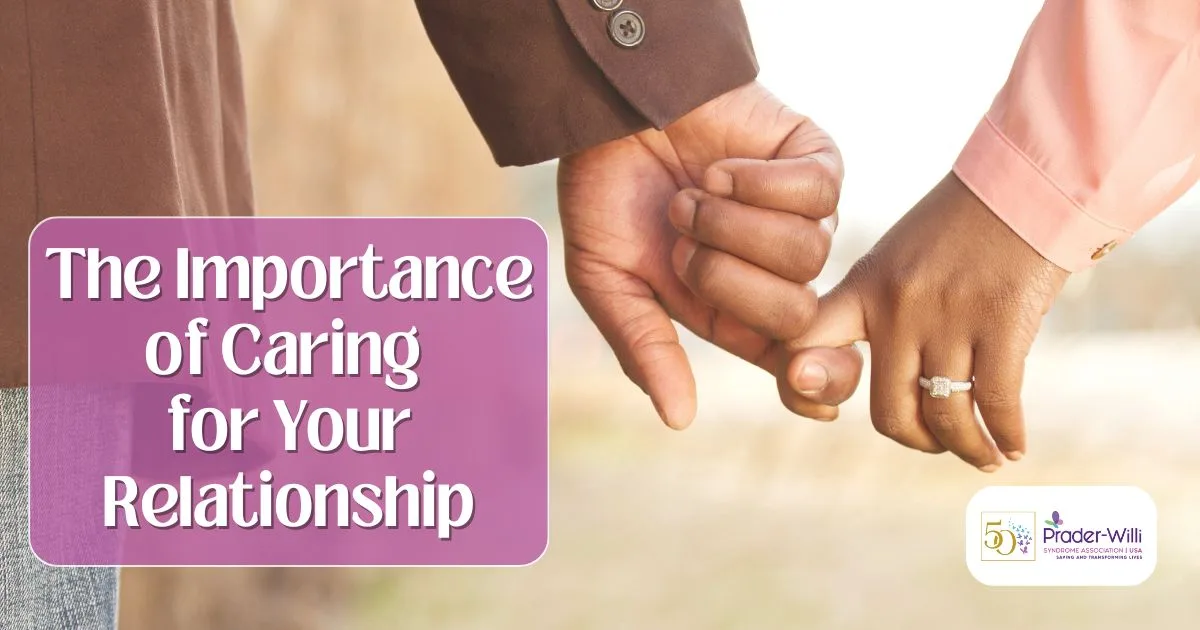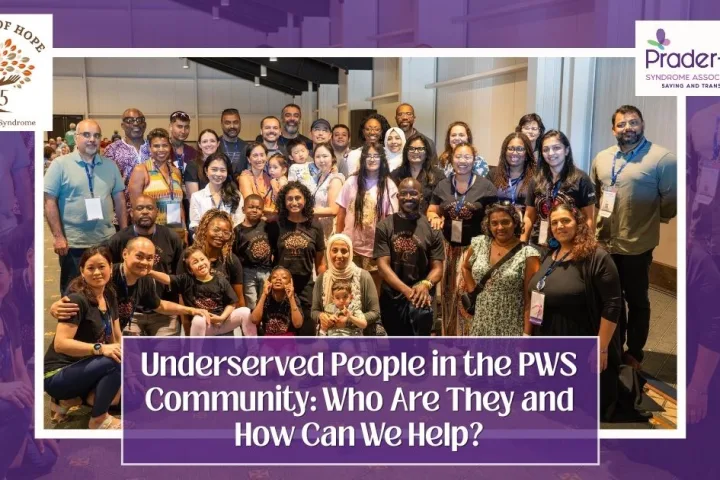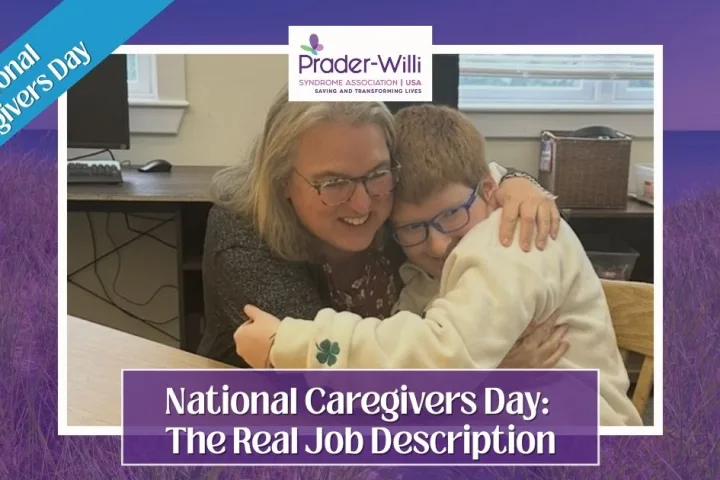submitted anonymously
No one tells you that the moment your child receives a life altering diagnosis your entire world shifts, including your marriage.
Raising a child with a disability is beautiful, powerful, and deeply meaningful, but it’s also exhausting, emotional, and never ending. For many families, the stress and pressure don’t just challenge the child, they can stretch the relationship between parents to its breaking point.
I know this because I lived it.
In the beginning, my partner and I were a team. We went to appointments together, learned the terminology, fought for services. But as time went on, the responsibilities grew heavier. One of us had to become the expert, the advocate, the scheduler, the full-time coordinator. And in our case, that person was me.
I didn’t realize it right away, but somewhere along the way, I stopped asking for help. I stopped letting my spouse in.
It wasn’t because I didn’t think he could do it. I was in survival mode. I told myself, “They’re working long hours. I’ve got this.” But the truth is, I didn’t have it. Not emotionally, not physically, and not in a way that honored the marriage we promised each other.
When you’re managing feeding schedules, therapy appointments, school meetings, insurance calls, and out of state appointments, there’s little time left for connection. Every conversation becomes about logistics instead of love. Affection fades and resentment starts to settle in.
In our case, we lost each other, not overnight, but gradually.
We didn’t argue often. We just grew apart in the silence of unmet needs and unspoken exhaustion.
Looking back, one of the biggest lessons I’ve learned is this, it’s ok to let your partner help. In fact, it’s essential.
Even if you’re the “expert parent.” Even if you know all the acronyms and medical history by heart, your spouse deserves to be a part of it. They may do things differently; they may not get it right every time but neither do you. None of us do.
I wish I would have known to share the care plan, not just the tasks, but the emotion behind them. Asked for help directly instead of hoping he would notice I was drowning. Allowed him the space to grieve. His silence was not him not caring, it was pain I never acknowledged. Had I made time for us, even 10 minutes on the couch in the evening, perhaps things would have turned out differently.
If you’ve experienced the loss of a relationship while raising a child with a disability, please know this: it’s not your fault. You were doing the best you could with what you had, and so were they.
Sometimes the pressure is just too much. Sometimes people grow in different directions. Sometimes grief looks like anger, or avoidance, or silence and sometimes, love just gets lost along the way.
Whether you’re still together, healing from a breakup, or navigating co-parenting, know this: you are not alone. There is no single right way to be a parent, a partner, or a person walking through this journey.
But if you’re still in it with your spouse, I encourage you to look up from the daily routine and check in. Not just about your child, but about each other. Talk, laugh, cry, share the weight. Don’t walk it alone. You both deserve to be seen not just as caregivers, but as people who once fell in love and maybe still can.
Resource:
For additional support, please watch “Keeping Your Relationship Intact” a recent session from our 2025 United in Hope International PWS Conference. This session was presented by Lisa Graziano, M.A., LMFT, practicing Marriage and Family Therapist and mom to Cameron (living with PWS).
Share this!





 Perry A. Zirkel has written more than 1,500 publications on various aspects of school law, with an emphasis on legal issues in special education. He writes a regular column for NAESP’s Principal magazine and NASP’s Communiqué newsletter, and he did so previously for Phi Delta Kappan and Teaching Exceptional Children.
Perry A. Zirkel has written more than 1,500 publications on various aspects of school law, with an emphasis on legal issues in special education. He writes a regular column for NAESP’s Principal magazine and NASP’s Communiqué newsletter, and he did so previously for Phi Delta Kappan and Teaching Exceptional Children. Jennifer Bolander has been serving as a Special Education Specialist for PWSA (USA) since October of 2015. She is a graduate of John Carroll University and lives in Ohio with her husband Brad and daughters Kate (17), and Sophia (13) who was born with PWS.
Jennifer Bolander has been serving as a Special Education Specialist for PWSA (USA) since October of 2015. She is a graduate of John Carroll University and lives in Ohio with her husband Brad and daughters Kate (17), and Sophia (13) who was born with PWS. Dr. Amy McTighe is the PWS Program Manager and Inpatient Teacher at the Center for Prader-Willi Syndrome at the Children’s Institute of Pittsburgh. She graduated from Duquesne University receiving her Bachelor’s and Master’s degree in Education with a focus on elementary education, special education, and language arts.
Dr. Amy McTighe is the PWS Program Manager and Inpatient Teacher at the Center for Prader-Willi Syndrome at the Children’s Institute of Pittsburgh. She graduated from Duquesne University receiving her Bachelor’s and Master’s degree in Education with a focus on elementary education, special education, and language arts. Evan has worked with the Prader-Willi Syndrome Association (USA) since 2007 primarily as a Crisis Intervention and Family Support Counselor. Evans works with parents and schools to foster strong collaborative relationships and appropriate educational environments for students with PWS.
Evan has worked with the Prader-Willi Syndrome Association (USA) since 2007 primarily as a Crisis Intervention and Family Support Counselor. Evans works with parents and schools to foster strong collaborative relationships and appropriate educational environments for students with PWS. Staci Zimmerman works for Prader-Willi Syndrome Association of Colorado as an Individualized Education Program (IEP) consultant. Staci collaborates with the PWS multi-disciplinary clinic at the Children’s Hospital in Denver supporting families and school districts around the United States with their child’s Individual Educational Plan.
Staci Zimmerman works for Prader-Willi Syndrome Association of Colorado as an Individualized Education Program (IEP) consultant. Staci collaborates with the PWS multi-disciplinary clinic at the Children’s Hospital in Denver supporting families and school districts around the United States with their child’s Individual Educational Plan. Founded in 2001, SDLC is a non-profit legal services organization dedicated to protecting and advancing the legal rights of people with disabilities throughout the South. It partners with the Southern Poverty Law Center, Protection and Advocacy (P&A) programs, Legal Services Corporations (LSC) and disability organizations on major, systemic disability rights issues involving the Individuals with Disabilities Education Act (IDEA), Americans with Disabilities Act (ADA), and the federal Medicaid Act. Recently in November 2014, Jim retired.
Founded in 2001, SDLC is a non-profit legal services organization dedicated to protecting and advancing the legal rights of people with disabilities throughout the South. It partners with the Southern Poverty Law Center, Protection and Advocacy (P&A) programs, Legal Services Corporations (LSC) and disability organizations on major, systemic disability rights issues involving the Individuals with Disabilities Education Act (IDEA), Americans with Disabilities Act (ADA), and the federal Medicaid Act. Recently in November 2014, Jim retired.